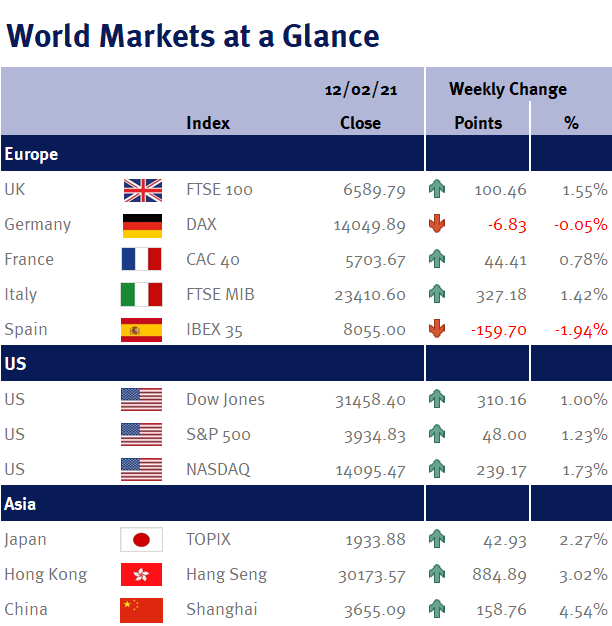Not only was the headline CPI inflation unchanged at 1.4% in January, but the core US CPI inflation rate (which excludes volatile items such as food and energy and as a consequence, we believe gives a better guide to where headline inflation itself is heading) actually fell to 1.4% from 1.6%!
This clearly highlights that higher oil prices (for example, US petrol prices rose over 7% in January and over 5% in December), are currently being offset by continuing price declines in other areas –hence why we believe that the Fed will look through any above target inflation in the coming months, as last year’s oil price slump works its way through the year-on-year inflation calculations.
Furthermore, Jay Powell this week reminded markets that the Fed has a dual mandate: inflation and employment – and the Fed Chair said he was very focused on rebuilding US employment, which will require supportive monetary policy for the foreseeable future given the US, with 6.3% unemployment, is “very far” from a strong labour market. And as we have previously stated, the US didn’t have an inflation rate issue before the coronavirus outbreak, when unemployment was just 3.5%.
Interestingly, this labour market weakness was evident in yesterday’s (Thursday 11 February 2021) jobless claims data. While both initial and continuing claims were lower than last week’s data (which is positive), this was predominately due to last week’s data being revised upwards (which is negative).
In the UK, the big news was today’s (Friday 12 February 2021) GDP data. Thankfully, as we forecast in the Weekly Summary on 15 January 2021 (please see here), the UK did avoid a double dip recession. In fact, to the surprise of the major economists, the UK economy expanded by 1% during the final quarter of 2020, having grown by 1.2% in December.
While this shows that the economy has adapted well to the coronavirus lockdowns, unfortunately the stricter lockdown restrictions introduced at the end of December will mean that this current quarter will see the UK economy contract.
However, given the success of the UK’s vaccination program and the prospect that restrictions will be slowly eased, economic growth should pick-up sharply in Q2 and Q3.
Looking ahead to this coming week, US markets are closed on Monday (15 February 2021) for President’s Day, while the seven days of public holidays for the Chinese New Year runs until Wednesday 17 February.
The week’s big data events that we will be analysing include UK CPI inflation; US & UK retail sales; US, UK & Eurozone PMI; Eurozone & Japanese Q4 GDP; minutes from the last Fed monetary policy meeting; US housing; the US Empire State manufacturing index; and the weekly US jobless claims.
Investment Management Team


